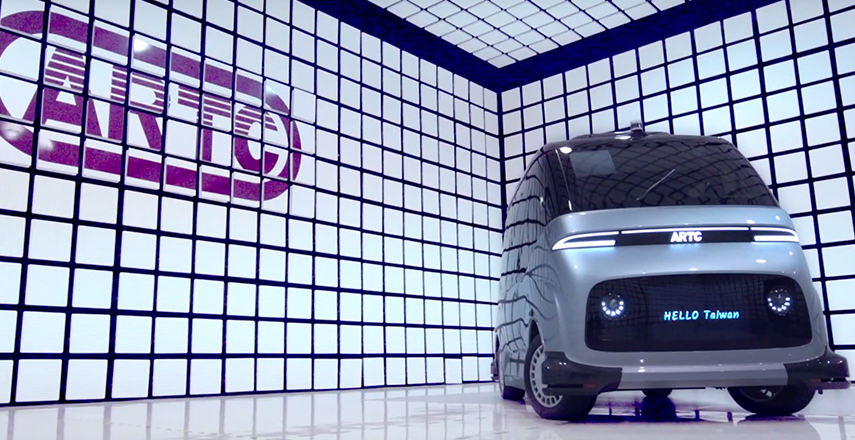Taiwan unveils driverless minibus

Credit: ARTC YouTube
Taiwan has unveiled its first fully-autonomous electric vehicle, developed and manufactured solely by Taiwanese businesses
According to the Ministry of Economic Affairs, the minibus, named WinBus, is expected to roll-out nationwide in 2021, with 5 major cities and 9 transportation organisations lined up to integrate it into their transportation network.
The WinBus utilises three positioning systems to identify obstacles, other road users and infrastructure. For comparison, Tesla’s famed autonomous vehicles use only one. It navigates by using vehicle-to-everything (V2X) communications, talking to other connected vehicles as well as smart infrastructure and the built environment.
However, smart vehicles like the WinBus rely on an advanced 5G network, which is set to launch in Taiwan in the first quarter of 2020. This advanced network minimises latency, offering the speed and capacity to facilitate V2X communications.
The vehicle was developed by a group of domestic manufacturers under guidance from the Automotive Research and Testing Center (ARTC), Taiwan’s foremost vehicle R&D institute.
According to ARTC, the WinBus meets the SAE Level 4 standard for autonomous-driving, meaning that the all-electric minibus can successfully carry out self-driving and environment-monitoring tasks with no need for a human driver.
Taiwan’s move to develop this fully-autonomous vehicle using a completely homegrown supply-chain shows an eagerness to join other nations in developing driverless-vehicles, while at the same time giving a boost to the local economy through industry and opportunity.
The WinBus will come into commercial use later this year, with Changhua Coastal Industrial Park keen to offer a shuttle service to its visitors.
